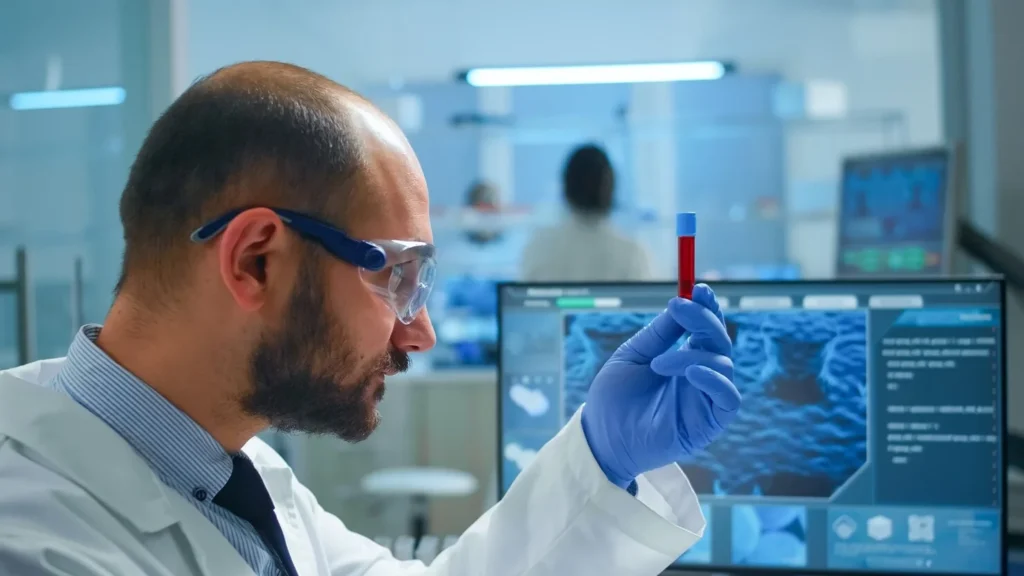What if medical diagnoses could be pinpointed with unparalleled precision? How can advanced genetic testing enhance the accuracy of identifying various health conditions? These questions are increasingly relevant as technology advances. Genetic testing is revolutionizing diagnostic practices, offering deeper insights into individual health.
Types of Advanced Genetic Tests
Genetic testing involves analyzing DNA to understand an individual’s genetic makeup. This process helps identify variations that may be linked to specific health conditions. A genetic test can reveal information about inherited traits and potential risks for certain diseases and even guide treatment options. For instance, testing can identify inherited mutations associated with cancer, heart disease, or rare hereditary disorders.
1. Whole Genome Sequencing (WGS)
Whole Genome Sequencing examines the entire DNA sequence. This comprehensive approach captures all genetic variations, providing a broad view of an individual’s genetic information.
Comprehensive Analysis:
Whole Genome Sequencing (WGS) provides a complete view of an individual’s genetic blueprint. It examines the entire genome, including all genes and non-coding regions. This thorough approach uncovers the variations that targeted tests might miss. WGS reveals rare or complex inherited variants crucial for accurate diagnosis and research.
Disease Risk Assessment:
Whole Genome Sequencing (WGS) helps assess the risk of various diseases based on genetic predispositions. It identifies specific mutations linked to conditions like cancer or heart disease. This early detection enables proactive management and preventive measures. Personalized health strategies can be developed based on an individual’s inherited profile.
2. Whole Exome Sequencing (WES)
Whole Exome Sequencing focuses on the exons, which are the parts of DNA that code for proteins. This type of testing is particularly useful in diagnosing rare genetic disorders.
Targeted Approach:
WES targets only the coding regions of the genome, making it a cost-effective method for identifying mutations in disease-related genes. By concentrating on these specific regions, WES reduces the amount of data that needs to be processed, which helps manage costs and complexity. This focused approach thoroughly examines the most relevant inherited information for diagnosing disease.
Effective for Rare Diseases:
It is often used when a diagnosis is elusive or when patients present with symptoms of rare hereditary disorders. WES can uncover mutations that might be missed by other methods, providing crucial insights when conventional tests fail. WES can be a powerful tool for patients with undiagnosed conditions in pinpointing hereditary causes and guiding further treatment.
3. Single Cell Sequencing
Detailed Analysis at the Cellular Level
Single-cell sequencing examines the genetic material from individual cells. This method allows for the study of gene expression and hereditary variations at a granular level, focusing on each cell’s unique characteristics.
Value for Complex Conditions
This method is precious for studying cellular diversity and understanding complex conditions like cancer. It helps identify differences between individual cells within a tissue, revealing insights into disease heterogeneity.
For example, in cancer research, Single Cell Sequencing can distinguish between cancerous and normal cells, providing detailed information that can guide targeted treatments.
4. Epigenomics Sequencing
Epigenomic Sequencing explores chemical changes to DNA and histone proteins that regulate gene activity. It reveals how environmental factors and lifestyle affect gene expression. This method is valuable for understanding complex diseases like cancer and neurological disorders. It identifies critical regulatory changes, offering new diagnostic markers and potential treatments for more effective management.
Advanced genetic testing is transforming the landscape of medical diagnostics. By providing deeper insights into an individual’s hereditary makeup, this genetic test enhances the accuracy of diagnoses and enables more personalized treatment plans. As technology advances, the potential for genetic testing to improve health outcomes becomes even greater. Embracing these advancements can lead to more precise, proactive, and effective healthcare solutions.






